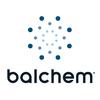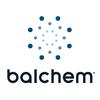
Content sponsored by:
Balchem Animal Nutrition
Effect of choline supplementation on milk production and milk lipids in post peak lactating Holstein cows
Published: August 9, 2024
Source : C. Matamoros*1,2, A. D. Patterson2, and K. J. Harvatine1, 1
Department of Animal Science, The Pennsylvania State University, University Park, PA, 2
Center for Molecular Toxicology and Carcinogenesis, Department of Veterinary and Biomedical Sciences, The Pennsylvania State University, University Park, PA
Choline supplementation is known to modify hepatic lipid metabolism in the dairy cow, but little is known about its effect on mammary lipid metabolism. The objective of this study was to characterize the effect of increasing doses of abomasally infused choline on milk production and milk lipids using untargeted lipomics. A total of 12 ruminally cannulated Holstein cows were used in a 4 × 4 Latin square design with 7-d experimental and 7-d rest periods. All cows were fed a common TMR diet formulated to have a low risk for milk fat depression. Treatments were continuous abomasal infusions of 0, 18, 36, or 54 g/d of choline. Infusion line patency and placements were checked daily. A 73% aqueous choline chloride stock solution was used as a source of choline and was infused in 5 L of water. Milk production was measured at the end of each period and milk samples were taken for analysis of milk component by FTIR and lipidomics analyzed using Thermo Orbitrap Exploris 120. Production data were analyzed with a mixed model that included the fixed effect of treatment and random effect of cow and period. Statistical analysis also included preplanned linear and quadratic contrasts. Lipidomics data were aligned, and reference matched with MS-Dial and analyzed using R-Studio. There was an effect of treatment (P = 0.04) on milk yield with a tendency for a quadratic contrast (P = 0.10) with maximum milk yield of 39.9 kg/d with 36 g/d of choline, compared with 37.3 kg/d for the control. There was no effect of treatment on milk fat or protein yield (P ≥ 0.13). There was no visually apparent clustering by treatment when all the lipidomic data were visualized with a principal component analysis. Furthermore, there was no modification of the concentration of any lipid species at any choline dose compared with the control [Log10 (P-value) < 1.3 and −1 > Log2 (Fold Change) < 1]. Overall, choline supplementation quadratically increased milk yield, but had no effect on milk component yield. The additional choline supply did not appear to influence mammary lipid metabolism, as there were no changes in the concentration of milk complex lipids including phospholipids.
Key Words: lipids, choline, phospholipids
Related topics:
Authors:

Recommend
Comment
Share

Would you like to discuss another topic? Create a new post to engage with experts in the community.




